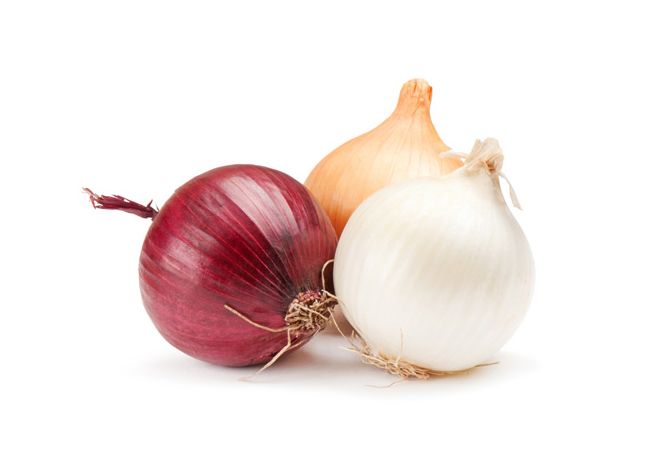SHARE WITH FRIENDS:
The most widely used vegetable in the world. It is again a healthy product.
100 g onions - 40 kcal
Onions contain cellulose, protein, magnesium, phosphorus, iron, sodium, calcium, potassium, vitamins A, B1, B2, B3, C, PP.

Defeats bacteria
Onions have excellent antibacterial and anti-infective properties. Onion juice contains phytoncides - natural antibacterial substances. It should be noted that raw onions are rich in antibacterial substances, and even boiled or steamed it is useful.
It lowers cholesterol, strengthens the heart and prevents cancer
Onions help fight cholesterol because it significantly lowers its amount. It also has the effect of softening the blood, thereby lowering blood pressure, protecting the heart by preventing blood clots. A number of scientific studies have been conducted on the daily consumption of onion products to reduce the incidence of cancer.
Sheds tears
Why do we shed tears when we cut onions? A mixture of the LFS enzyme and sulfur-containing amino acids in onions affects the throat and tear ducts due to sulfonic acid, leading to tearing.